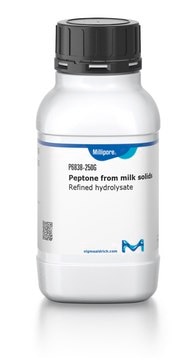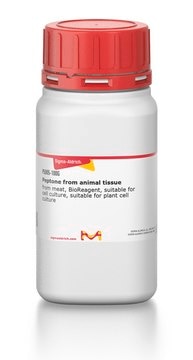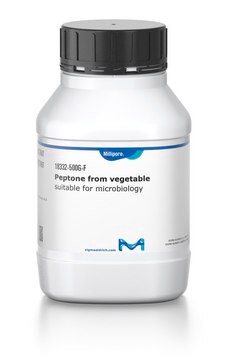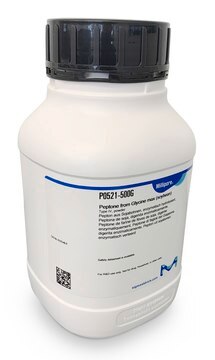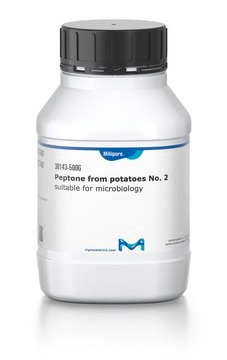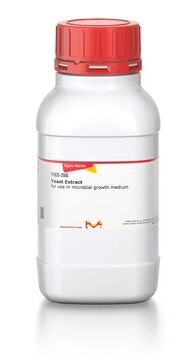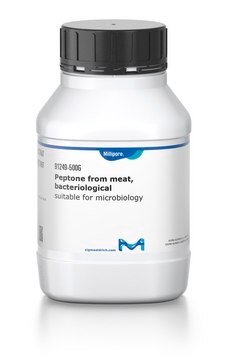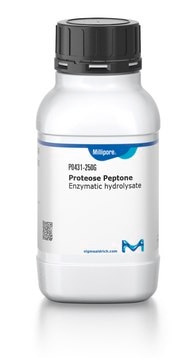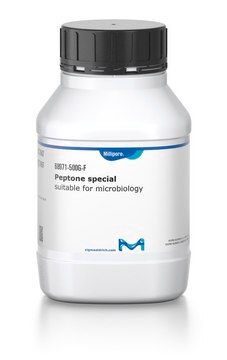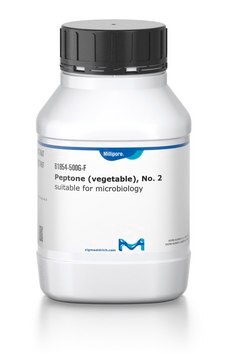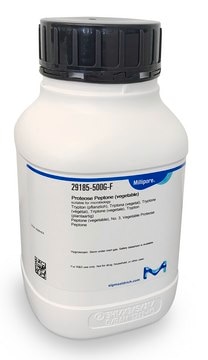83059
Pepton aus Kartoffeln
suitable for microbiology
Synonym(e):
Pepton aus pflanzlicher Quelle
About This Item
Empfohlene Produkte
Biologische Quelle
potato
Qualitätsniveau
Form
powder
Zusammensetzung
amino-nitrogen, ≥4.5%
total nitrogen (N), ≥9.5%
Glührückstand
≤22%
Verlust
≤6.0% loss on drying
pH-Wert
6.5-7.5 (25 °C)
Löslichkeit
H2O: 2%, slightly turbid to turbid, yellow to brownish-yellow
Anwendung(en)
food and beverages
microbiology
Suchen Sie nach ähnlichen Produkten? Aufrufen Leitfaden zum Produktvergleich
Verwandte Kategorien
Anwendung
WGK
WGK 3
Flammpunkt (°F)
Not applicable
Flammpunkt (°C)
Not applicable
Persönliche Schutzausrüstung
Eyeshields, Gloves, type N95 (US)
Choose from one of the most recent versions:
Analysenzertifikate (COA)
Sorry, we don't have COAs for this product available online at this time.
If you need assistance, please contact Kundensupport
Besitzen Sie dieses Produkt bereits?
In der Dokumentenbibliothek finden Sie die Dokumentation zu den Produkten, die Sie kürzlich erworben haben.
Kunden haben sich ebenfalls angesehen
Unser Team von Wissenschaftlern verfügt über Erfahrung in allen Forschungsbereichen einschließlich Life Science, Materialwissenschaften, chemischer Synthese, Chromatographie, Analytik und vielen mehr..
Setzen Sie sich mit dem technischen Dienst in Verbindung.